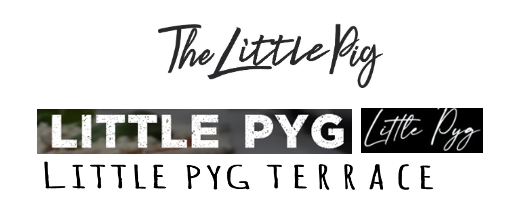Importance of Trade Marks in Hospitality

A recent trade mark dispute between two restaurants in the Circuit Court highlights the importance of early trade mark registration in the hospitality industry. Our Intellectual Property team considers this case and provide some key takeaways on trade mark protection for restaurants, hotels, cafes and bars.
A recent trade mark battle between two Little Pigs shows the importance of trade mark searches and early trade mark registration for bars, restaurants, cafes, hotels and other businesses in the hospitality industry.
We consider how this case would have differed with trade mark registration and provide some top trade mark takeaways for hospitality.
Café Presse Limited, trading as LITTLE PIG, a cocktail bar and restaurant in Dublin city centre commenced Circuit Court proceedings against The Pygmalion Public House Limited in 2023.
Pygmalion opened a restaurant called LITTLE PYG in 2019 about 2 minutes’ walk from LITTLE PIG.
Pygmalion already operated a well-known bar, PYGMALION in the same building as LITTLE PIG. Pygmalion then opened LITTLE PYG TERRACE in September 2023.
Pygmalion had also registered a trade mark for LITTLE PYG in the EU.
There was evidence of confusion between the two bars, with a number of customers attending the wrong venue in error.
Café Presse claimed that LITTLE PYG changed its logo in November 2021 to become more similar to LITTLE PIG. Samples of the various logos are below.

The parties settled their dispute in December 2023, with LITTLE PYG’s signage to change.
Café Presse did not file an Irish trade mark application until October 2023, many years after commencing in business and after the opening of LITTLE PYG and LITTLE PYG TERRACE.
As Café Presse did not own a registered trade mark, it would have had to rely on passing off against Pygmalion. If Café Presse had registered its trade mark prior to LITTLE PYG opening, the enforcement of this trade mark would have been much more straightforward. The dispute would also likely have been resolved earlier.
Other examples
Last year, we also had the widely reported dispute between a father, who operated LAM’S Chinese takeaway in Dublin and his son, who opened New LAM’s Chinese take away next door. While in this case, Lam was the surname of both parties, had this occurred with a different name, with trade mark registration secured, the original owner could have taken some action for trade mark infringement.
These types of cases are not that uncommon in the hospitality industry. What is surprising is the number of established Irish restaurants and bars that have not registered trade marks in Ireland or the European Union.
Remedies for trade mark infringement include injunctions, damages or account of profits and seizure and destruction of infringing goods. So it is very effective when there is infringement.
This case shows the importance of trade mark registration to protect rights. Trade mark registration also assists if you are looking to expand into new venues or countries, seek third party investment or commence the sale of your business.
Conclusion
With the hospitality industry in Ireland under unprecedented financial strain, every penny counts. No one wants the financial and business distractions of a trade mark dispute, where a third party’s use of a name may be affecting your business.
Some simple steps will reduce the risk of infringement claims and also make the ability to enforce your rights easier:
- When starting a new hospitality business, undertake trade mark clearance searches to ensure that your proposed name does not infringe third party rights.
- Select a name that is as distinctive as possible.
- Apply for a trade mark for your chosen name as early as possible. Depending on your business, an Irish or EU trade mark may be more appropriate.
- If you plan to sell merchandise, such as t-shirts, caps or recipe books, consider appropriate trade mark protection for these goods.
- Monitor the market and trade mark registers to ensure that no one infringes your trade mark rights.
- If someone infringes your rights or makes a claim against you, obtain legal advice as soon as possible and take appropriate action.
For more information and expert legal advice on how best to protect your trade marks and other intellectual property rights, please contact a member of our award-winning Intellectual Property team.
The content of this article is provided for information purposes only and does not constitute legal or other advice.
People also ask
What is an example of trade mark infringement? |
Trade mark infringement can occur if, for example, a restaurant commences business under an identical or similar name to a registered trade mark which covers the same or similar goods or services. |
What is the trade mark law in Ireland? |
The Trade Marks Act 1996, as amended, governs trade mark law in Ireland. It defines a trade mark as "any sign which is capable of distinguishing goods or services of one undertaking from those of other undertakings”. |
How do you avoid infringing a trade mark? |
Carry out clearance searches before you start using a trade mark, to ensure that your proposed mark is not similar to a prior mark. |
What are the remedies for trade mark infringement? |
Remedies for trade mark infringement include injunctions, damages or account of profits and seizure and destruction of infringing goods. |
How are trade marks protected? |
Trade marks are protected by registering them on the appropriate trade marks register. In Ireland, this is either the Trade Marks Register of the IPOI or the EUIPO. |
Share this:

